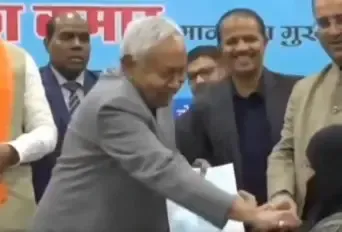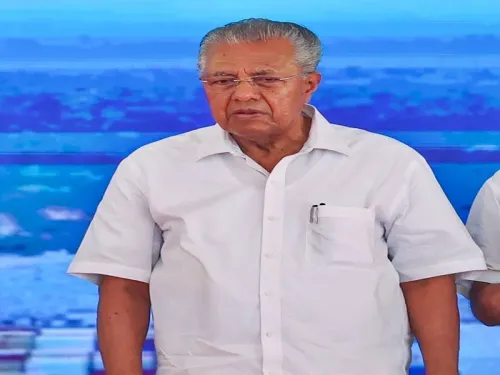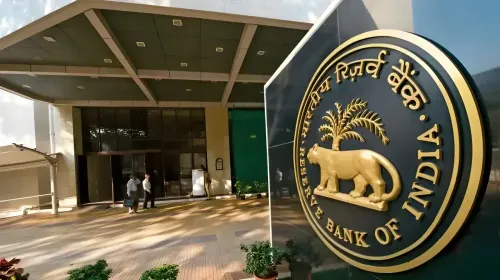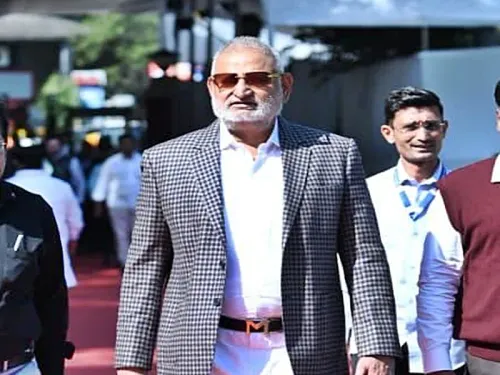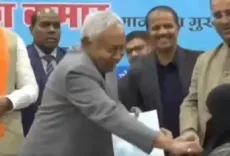India Set to Lead Globally by Fusing Tradition with Modern Knowledge: Rajasthan Governor
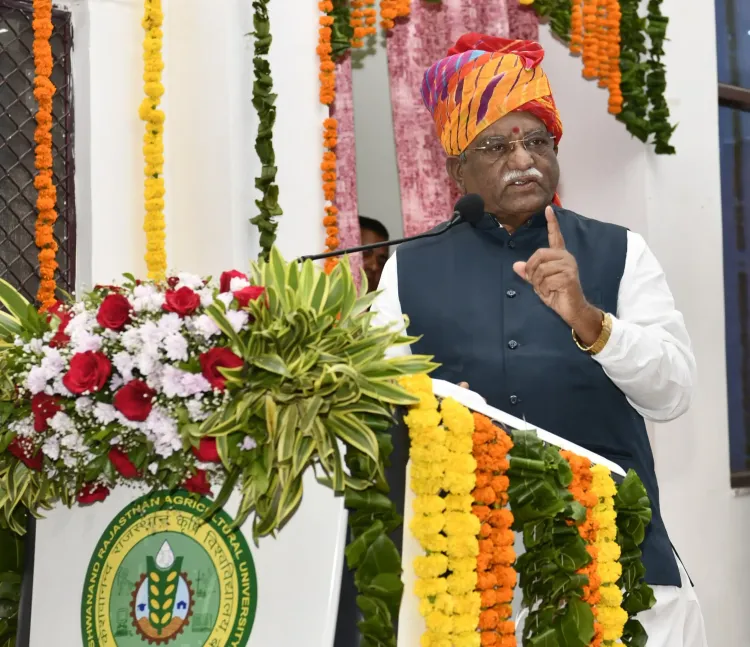
Synopsis
Key Takeaways
- India's potential as 'Vishwa Guru' through traditional-modern integration.
- Revival of ancient educational systems with the title of Kulguru.
- New education policy linked to student success and societal impact.
- Encouragement of entrepreneurship among youth for national development.
- Importance of strong values in education for responsible citizenship.
Jaipur, March 29 (NationPress) Rajasthan Governor Haribhau Bagde asserted that India can attain the esteemed title of 'Vishwa Guru' through the synthesis of traditional wisdom and modern knowledge. During his address, he emphasized that referring to university vice-chancellors as Kulguru signifies a revival of the ancient Indian educational framework, which he regarded as exemplary.
He acknowledged the significance of the new education policy, linking it directly to the development and future success of students.
At the 12th convocation of Maharishi Dayanand Saraswati University in Ajmer, the Governor presented gold medals for the academic years 2023 and 2024, along with degrees to Vidya Vachaspati awardees.
He highlighted India's extensive scientific heritage, citing Maharishi Bhardwaj’s aeronautical theories, which he claimed influenced Shivkar Bapuji Talpade’s flight attempts in 1895—years ahead of the Wright brothers.
Furthermore, he pointed out that Indian intellects like Bhaskaracharya had formulated the gravity theory well before Newton and Copernicus.
The Governor reminisced about Vinoba Bhave’s appeal for an educational reform post-Independence and condemned the lingering influence of the colonial-era Macaulay education system.
He asserted that the new education policy resonates with Indian culture and society, promising a significant societal impact through future graduates. Emphasizing the necessity for employment-oriented courses, he urged higher education institutions to foster entrepreneurship among the youth, enabling them to contribute actively to national progress.
Education, he stated, must aim to cultivate individuals with strong values, citing Maharishi Dayanand Saraswati as a paragon of human virtues.
He further highlighted that the new education policy was developed after two years of thorough discussions with 400 vice-chancellors and over 1,000 education experts. He believes this policy will enrich students’ intellectual capacities. He encouraged professors to pursue ongoing learning and advised students to explore knowledge beyond textbooks to broaden their perspectives.
Rajasthan Assembly Speaker Vasudev Devnani characterized the convocation as a time for introspection regarding one’s responsibilities towards family, society, and the nation. He asserted that education constitutes a lifelong journey, and in the contemporary digital era, artificial intelligence has made a profound impact on society.
He cautioned against its detrimental effects on social media and public life, urging the youth to remain vigilant against such influences. Devnani lauded India's ancient educational traditions, which are grounded in the ashrama principle and purusharthas, while recognizing the contributions of historic centers of learning like Nalanda, Takshashila, and Vikramshila.
He underscored the roles played by scholars such as Maitreyi, Gargi, and Aryabhata as well as educators like Charak, Sushruta, and Chanakya in shaping India’s intellectual legacy. He encouraged students to draw inspiration from leaders like Chhatrapati Sambhaji Maharaj and Maharana Sanga, asserting that those who glorify invaders cannot genuinely belong to India or its cultural identity.
Calling for unwavering patriotism among the youth, Devnani emphasized the necessity of a strong national sentiment. He stressed that students educated in the principles of Swaraj (self-rule), Swadharma (duty), Swadeshi (localism), and Swabhasha (native language) will play a vital role in correcting societal misalignments.
He noted that India is on a mission to reclaim its ancient educational dignity, and the decision to designate vice-chancellors as Kulguru marks a pivotal reform in this endeavor. The new education policy, he asserted, harmonizes modern knowledge with the richness of ancient Indian culture, Vedic traditions, and Sanatan life values.
He cautioned against the Western narrative in education, urging students to stay connected to their cultural heritage. Women and Child Development Minister Dr. Manju Baghmar referred to the convocation as a significant milestone in students’ lives, stressing that the discipline, humility, and moral values acquired during their educational journey shape them into responsible and ideal citizens.
Vice-Chancellor Kailash Sodani remarked that India is becoming the world’s fastest-growing economy. He expressed certainty that the new generation is well-prepared to face challenges and propel national advancement.


